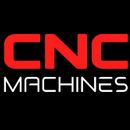FANUC's Dominance in the CNC Market: Competitive Advantages and Pathways for New Entrants

FANUC's Dominance in the CNC Market: Competitive Advantages and Pathways for New Entrants
In the realm of Computer Numerical Control (CNC) systems, FANUC Corporation stands as a towering figure, commanding a significant share of the global market. Renowned for its precision, reliability, and innovation, FANUC's CNC systems are integral to manufacturing processes worldwide. This article delves into the factors underpinning FANUC's market leadership, identifies its primary competitors, and outlines strategies for new companies aiming to carve out a niche in this competitive landscape.
FANUC's Competitive Advantages
1. Integrated Automation Solutions
FANUC's strength lies in its comprehensive suite of automation products, encompassing CNC systems, industrial robots, and machine tools. This integration allows for seamless operation across various manufacturing processes, enhancing efficiency and reducing downtime. The company's ability to offer end-to-end solutions makes it a preferred partner for manufacturers seeking streamlined automation.
2. Global Presence and Support Network
With a robust global footprint, FANUC provides extensive customer support and service networks. This ensures timely maintenance, training, and troubleshooting services, fostering customer loyalty and trust. The company's commitment to customer service reinforces its market position and encourages long-term partnerships.
3. Continuous Innovation and R&D
FANUC invests heavily in research and development to stay at the forefront of CNC technology. By continually enhancing the capabilities of its systems, such as incorporating artificial intelligence and machine learning, FANUC addresses evolving industry demands and maintains its competitive edge.
Key Competitors in the CNC Market
While FANUC leads the CNC market, several companies offer formidable competition:
- Siemens AG: Known for its advanced CNC systems, Siemens provides high-performance solutions tailored for complex machining tasks, particularly in the aerospace and automotive sectors.
- Mitsubishi Electric: Offers a range of CNC products known for their precision and reliability, catering to various manufacturing industries.
- Heidenhain: Specializes in high-precision measurement and control equipment, serving industries requiring ultra-precise machining.
- Haas Automation: Provides cost-effective CNC machines, targeting small to medium-sized enterprises seeking reliable and affordable solutions.
- Okuma Corporation: Offers a broad spectrum of CNC machines and controls, emphasizing user-friendly interfaces and energy-efficient designs.
Strategies for Emerging Companies to Compete
For new entrants aiming to establish themselves in the CNC market, the following strategies can be instrumental:
1. Niche Specialization
Focusing on specific industry segments or specialized applications can help new companies differentiate themselves. By addressing unique needs not fully met by larger competitors, emerging firms can build a loyal customer base.
2. Innovation and Flexibility
Developing cutting-edge technologies, such as integrating IoT capabilities or offering cloud-based CNC solutions, can attract customers seeking modern, adaptable systems.
3. Competitive Pricing and Value Proposition
Offering high-quality products at competitive prices can appeal to cost-conscious customers. Providing excellent after-sales service, training, and support enhances the overall value proposition.
4. Strategic Partnerships
Collaborating with machine tool manufacturers, software developers, or academic institutions can facilitate technology development and market entry.
The Future Landscape
As manufacturing continues to evolve with advancements in automation, artificial intelligence, and digitalization, the CNC market is poised for further growth and transformation. Companies that prioritize innovation, customer-centric solutions, and strategic agility will be well-positioned to thrive alongside established players like FANUC.


